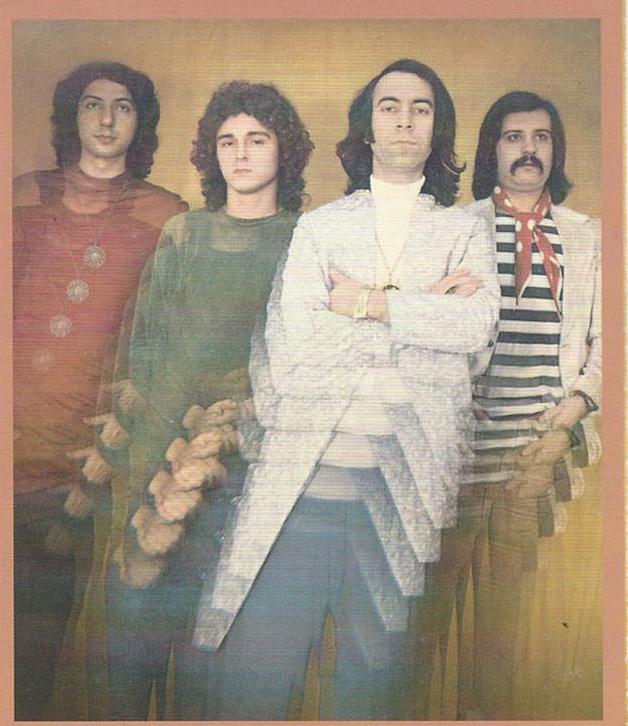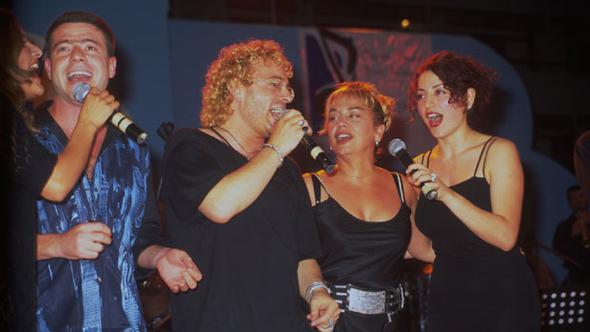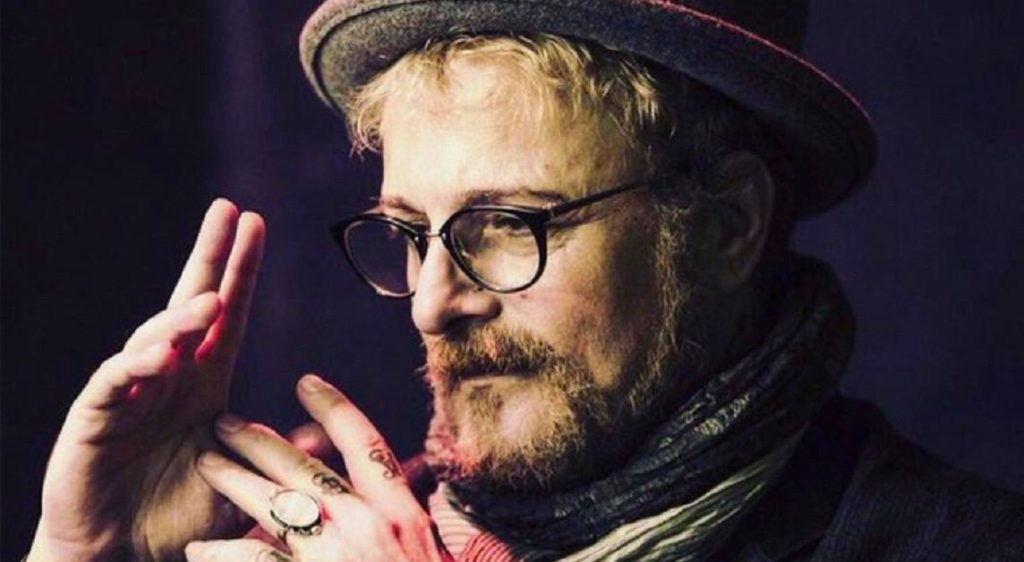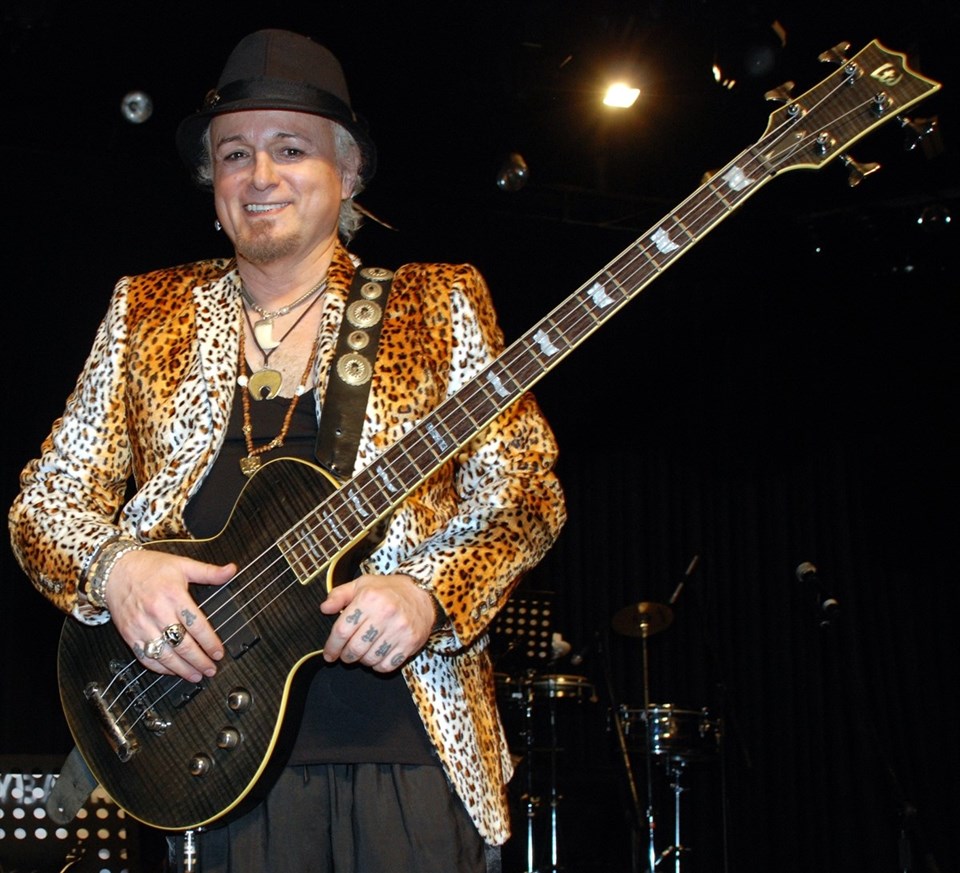By implication when you rock with the greats, you too must also be great. During his forty year career, Harun Kolçak worked alongside many of Turkey’s finest musicians and artists, including Erkin Koray, Onno Tunç, Erol Pekcan, Zerrin Özer, Aşkın Nur Yengi, and İskender Paydaş.
Last month, Istanbul-born Kolçak month lost his three-year battle to cancer, at the age of 62. T‑VINE takes a look back at the musical legacy of one of Turkey’s best loved artists.
The son of renowned Turkish actor Esref Kolçak, young Harun was surrounded by famous names at an early age. Showing an interest in music, his dad bought Harun his first guitar (pictured below – photos from a tweet Harun sent on Father’s day this year) and introduced him to his friend Erkin Koray.
Bana aldığı ilk öğrenci gitarı ve babam. #BabalarGünüKutluOlsun pic.twitter.com/5MdiHW1r1d
— Harun Kolçak (@HrnKlckMusic) June 18, 2017
The godfather of Turkish rock took the gifted young guitarist under his wing and helped nurture his undoubted talent. Kolçak played bass guitar on Koray’s 1977 album Tutkusu.
The experience propelled him into the arms of Silahlıpoda Ritm 68 Orkestrası, a musical all-stars band formed by Rıza Silahlıpoda whose occasional members featured Erol Büyükburç, Ajda Pekkan, Özdemir Erdoğan, and Selçuk Ural. The band’s repertoire reflected the popular sounds of Turkey and the West during the 70s.

Forced to break off from his musical career for military service, Kolçak returned after a two-year hiatus to focus more on jazz projects, working with keys player Aydın Esen, guitarist Neşet Ruacan and his sister, jazz singer Nükhet Ruacan, and seminal drummer Erol Pekcan who was part of the trio that released Turkey’s first jazz album Jazz Semai (1978). Performing alongside such exceptional musicians helped Kolçak to hone his skills as a bass guitarist, prompting an invite by Onno Tunç to join his band in what would be a life-changing moment for the emerging star.
Onno Tunç was a prolific hit-maker and himself a brilliant bass guitarist. Of Turkish Armenian origin, his collaborations as a musician, composer and arranger read like a Who’s Who of Turkey’s greatest artists. Stepping into Tunç’s band, where he remained for seven years, Kolçak’s world instantly elevated, as did his aspirations as an artist.
Kolçak sang and played guitar alongside the likes of Zerrin Özer and Aşkın Nur Yengi, while singing backing vocals on albums for Nilüfer, Sezen Aksu and Zerrin Özer. In 1987, he and Aşkın Nur Yengi tried out at the Turkey finals of Eurovision song contest with a Tunç-penned and produced track, Güzel Şeyler Söyle, but lost out to Seyyal Taner and Grup Lokomotif, whose song Şarkım Sevgi Üstüne received nil points at Eurovision that year.

Undeterred, Kolçak entered other events performing duets with Zerrin Özer and Aşkın Nur Yengi. They won awards at several key music competitions including Kuşadası Altın Güvercin Müzik Yarışması (Kuşadası Golden Pigeon Music Competition) and Akdeniz Müzik Yarışması (Mediterranean Music Competition) in Antalya. It was during this time he decided to step out of the shadows and become a lead singer in his own right.
In 1991, Tunç produced Kolçak’s debut album Beni Affet. Sporting a perm on the front cover, the singer looked not dissimilar to parody artist “Weird Al” Yankovic. His ten-track album went on to become one of the year’s biggest sellers, marking the arrival of Harun Kolçak as a star in his own right.
He went on to release three more albums in quick succession, working closely with İskender Paydaş, a fast-rising music producer (and now one of Turkey’s biggest). Beni Affet, En Büyük Aşk (1993), Yanımda Kal (1995), and Teslim Oldum (1998) meant Kolçak’s music received constant airplay throughout the decade, forming the soundtrack to the lives of many Turkish teenagers and firmly establishing him as one of the country’s beloved pop names.
After his phenomenal success in the 90s, Kolçak continued to explore different musical ideas. In November 2006, he was the support act for Ebru Gündeş’s London concert, bringing him new UK fans who were awed by this lesser-known, but equally fabulous entertainer.
He changed record labels and continued to record music in the new millennium, releasing a further four albums. His last – Çeyrek Asır in 2016 – celebrated the 25th anniversary of his debut release. Kolçak invited his diverse artist friends, such as İrem Derici, Bedük, Gökhan Türkmen, Tuğba Yurt, Yaşar, Kubat, Işın Karaca, Zara, Aşkın Nur Yengi, and Alişan Göksu to feature on re-recordings of some of his biggest hits.
The album was well received by the critics and fans alike, and earlier this year Kolçak announced he was working on Çeyrek Asır 2, which he was set to release at the end of this year. It was not to be.
In 2014 he was diagnosed as having prostate cancer. Surgery and treatment had helped him to recover, but he suffered relapses. Kolçak became ill again in June this year and was admitted into Maslak Acıbadem Hospital, where he died on 19 July 2017.
Before he died, the singer said: “Death brings meaning to many things in life. If we lived forever, we would not value each other.”
He leaves a wealth of unforgettable songs including Gir Kanıma, Müptelayım Sana, Gitme Seviyorum, Yanımda Kal, Deli Et Beni, Korkuyorum, and Sensiz Olmam.





